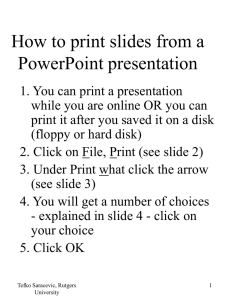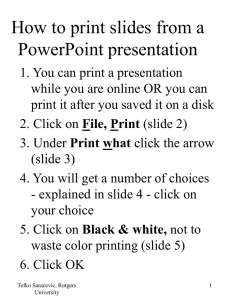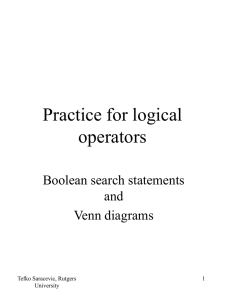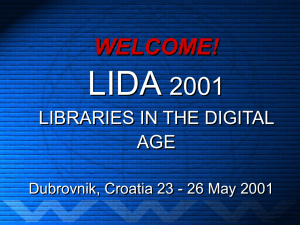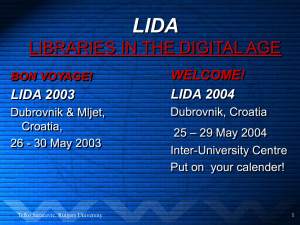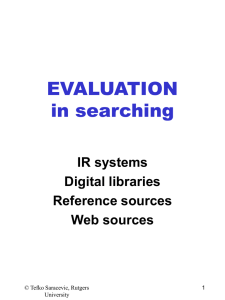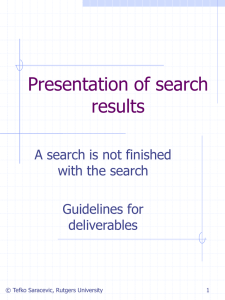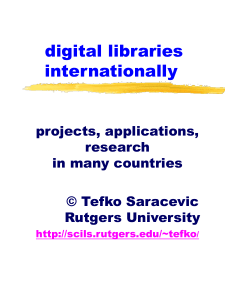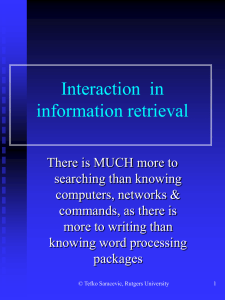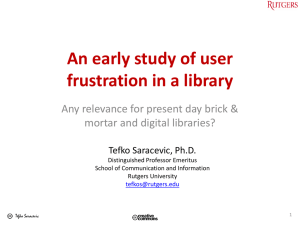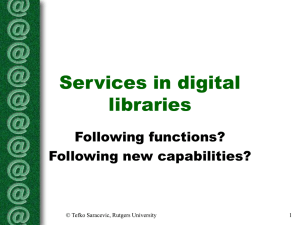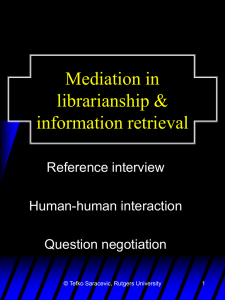Libr perspective - School of Communication and Information
advertisement
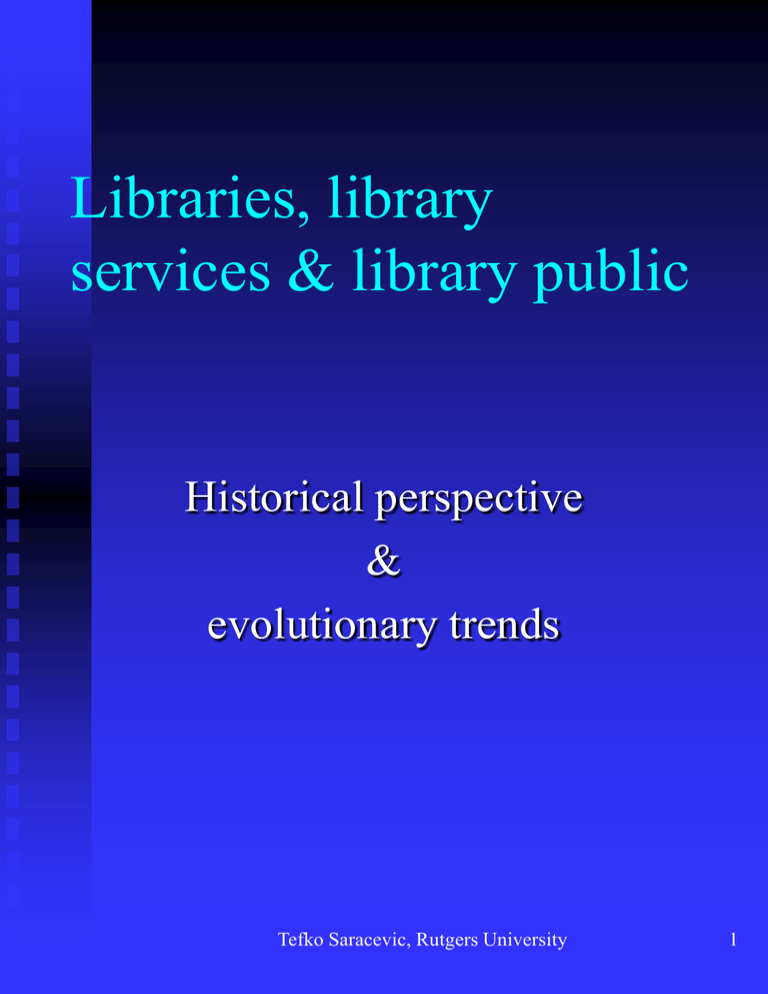
Libraries, library services & library public Historical perspective & evolutionary trends Tefko Saracevic, Rutgers University 1 Explore: What are libraries all about? What role did they play & are playing in: SOCIETY, HUMAN AFFAIRS, HUMAN COMMUNICATION? Tefko Saracevic, Rutgers University 2 Role Library ...”contributes to the total communication system in society.” “Though the library is an instrumentality created to maximize the utility of graphic record for the benefit of society, it achieves that goal by working with the individual, & through the individual it reaches society.” Jesse H. Shera, 1972 Tefko Saracevic, Rutgers University 3 Library ... Devoted to organization, preservation & use of human knowledge records Not only as a particular inf. system, but also as an social, cultural & educational institution throughout human history across boundaries of culture, nations & times Tefko Saracevic, Rutgers University 4 Role of libraries in: Culture Knowledge & scholarship Organization of knowledge Education Governance Popular access Communication & use of information Tefko Saracevic, Rutgers University 5 Culture Permanence & preservation essential for continuity of a culture Libraries provide memory external to any individual Also provide for unity Convenient storage & utilization Preservation of records & artifacts of knowledge from graphic to images & sounds Tefko Saracevic, Rutgers University 6 Knowledge, scholarship Idea of collecting world’s knowledge in one place Alexandria Library, British Library, Library of Congress Libraries fundamental for scholarly work, research Model of librarian as a scholar vs. professional Selection vs. all inclusive ‘knowledge most worth having’ Tefko Saracevic, Rutgers University 7 Organization Availability inventory of a collection of many collections - union catalog of writings - bibliography librarian as bibliographer Access bibliographic organization subject organization classification, indexing ... Arrangement physical arrangements intellectual arrangements Tefko Saracevic, Rutgers University 8 Education Early connection between academic education & libraries started as “book stationaries” Indispensable today Popular education & libraries American public library movement Children & libraries Growth of school media centers Tefko Saracevic, Rutgers University 9 Governance Earliest libraries: rulers, courts Depositories of laws, regulations, decrees Copyright - intellectual rights Dissemination of inf. by government Use in political processes Intellectual freedom constant battle, controversy Tefko Saracevic, Rutgers University 10 Communication & use Related to organizations, disciplines, businesses support of their mission Special libraries & inf. centers Information explosion growth Communication explosion growth of inf. industry of networks Changing orientation to access & use Tefko Saracevic, Rutgers University 11 Popular access From Romans: facilities for everyone seeking knowledge “made the talents of men property of all” Orientation to group of users active seeking wider audience local identity, structure Modern library emerged at the end of 19 cent. continues to this day but also in transition Tefko Saracevic, Rutgers University 12 Post-industrial, postcapitalist society - change "The basic economic resource is no longer capital, nor natural resources (the economist’s “land”) nor "labor." It is and will be knowledge. . Value is now created by "productivity" and "innovation," both applications of knowledge to work. The leading social group of the knowledge society will be "knowledge workers" knowledge executives who know how to allocate knowledge to productive use, knowledge professionals, knowledge employees." Drucker, 1994 Tefko Saracevic, Rutgers University 13 Transitional challenges Inf. increasing in value not automatic increase in value of library & inf. services in present configuration & structure Changes in models from ‘just-in-case’ to ‘just-in time’ to ‘just-for-you’ access becomes paramount electronic resources & networks Tefko Saracevic, Rutgers University 14 Transitional challenges (cont.) New ‘players’ in inf. serv. increased competition growing competition for funds Needs for justification & evaluation of results From users & use perspectives What provided? What value? Tefko Saracevic, Rutgers University 15 On the horizon Evolving a ‘new’ library beyond the modern one Digital libraries Effect of technology Through open access create libraries for individuals individual selection & access create private spaces Librarian as enabler Importance of knowing how individuals use information Tefko Saracevic, Rutgers University 16
